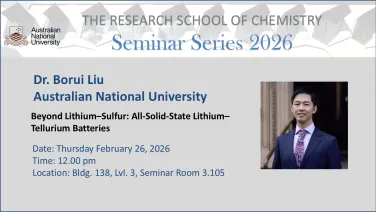RSC School Seminar - Prof. Dennis Hall
From Drugs to Catalysts: Design and Application of Boron Heterocycles Guided by Properties and Reactivity
Speakers
Event series
Content navigation
Description

From Drugs to Catalysts: Design and Application of Boron Heterocycles Guided by Properties and Reactivity
The advent of benzoxaborole drugs sparked a renaissance surrounding heterocycles derived from boronic acids in organic and medicinal chemistry, where they demonstrate a wide range of biological properties. Our recent studies addressed unanswered questions regarding the physical properties, acidic nature (Lewis vs Brønsted), dynamic behavior, and reactivity of boranol (B–OH)-containing oxa- and azaheterocycles in organic and aqueous media. These fundamental studies are essential for guiding a systematic application of select heterocycles as enantioselective reaction catalysts, in bioconjugation, and as new antimicrobial drug chemotypes and bioisosteres of pharmaceutically important classes of heterocycles. Ongoing investigations focus on new boroheterocyclic chemotypes, including chiral derivatives, and the exchangeability of B–OH bonds for direct catalytic activation of alcohols and diols.
Biography
Dennis Hall received his PhD in 1995 working with Prof. Pierre Deslongchamps at the Université de Sherbrooke (Quebec, Canada). Between 1995–1997 he was an NSERC postdoctoral fellow in the group of Prof. Peter G. Schultz at UC Berkeley. He moved to the University of Alberta in 1997 where he currently holds the Tier-1 Canada Research Chair in Boron Chemistry for Catalysis and Drug Discovery. The unifying theme of his interdisciplinary research program is the development of new synthetic and biological applications of organoboron derivatives, including catalysis, stereocontrolled reactions, heterocycles, and medicinal chemistry. He has co-authored over 170 peer-reviewed publications and his contributions were recently recognized by the 2021 R. U. Lemieux Award from the Canadian Society for Chemistry, and a 2024 Arthur C. Cope Scholar Award from the American Chemical Society. He currently serves as an Associate-Editor of Science Advances (AAAS), and is a member of the Editorial Board of Organic Reactions (Wiley).
Location
Building 138, Level 3, Seminar Room 3.105

